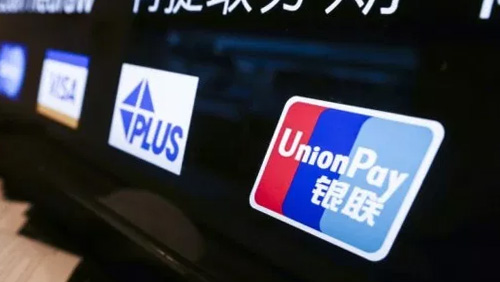Fears are subsiding in Macau’s gaming industry as the clampdown against UnionPay transactions appears to be winding down, according to gambling analysts.
 International brokerage JP Morgan Securities and Japanese credit-debt watcher Nomura have allayed concerns of a sustained crackdown on UnionPay terminals in the former Portuguese enclave. While the recent clampdown on retail shops’ use of the terminals added negative sentiment to the gaming market, the two financial institutions believe that the crackdown will not have any measurable impact on gross gaming revenue trends.
International brokerage JP Morgan Securities and Japanese credit-debt watcher Nomura have allayed concerns of a sustained crackdown on UnionPay terminals in the former Portuguese enclave. While the recent clampdown on retail shops’ use of the terminals added negative sentiment to the gaming market, the two financial institutions believe that the crackdown will not have any measurable impact on gross gaming revenue trends.
“We believe the latest UnionPay terminal removals and World Cup have had little (if any) impact on Macau GGR so far,” Nomura analysts Harry Curtis, Daniel Adam and Brian Dobson stated in a note issued on Monday.
Meanwhile, JP Morgan analysts DS Kim and Sean Zhuang pointed out that most of their contacts were unaffected by the clampdown “as players are finding other ways to obtain liquidity.”
They also noticed that the Chinese government didn’t launch further crackdowns in recent weeks—an indication that the incident could have been an isolated case.
“Our on-the-ground checks reveal that some (not many) of the jewellery shops inside casinos have actually resumed UnionPay services recently, although they seem more cautious than before in offering such services (this could be because they may be utilising illegal mobile point-of-sale machines, though we couldn’t verify this),” according to the JP Morgan analysts.
Over the past few years, Macau authorities have conducted raids on illegal UnionPay terminals—events that made no considerable impact on GGR. Perhaps one of the reasons why the raids don’t have a measurable impact is due to an abundance of legal UnionPay terminals.
Furthermore, Macau financial and gaming regulators have not placed other notable restrictions on transactions. Early this month, the Monetary Authority of Macao quickly doused speculations that Macau pawnshops have been banned from using UnionPay.
However, Macau’s financial watchdog pointed out that “banks are obliged to perform adequate due diligence on, and ongoing monitoring of, the merchants in order to prevent the abuse of POS machines [for] illegal activities.”